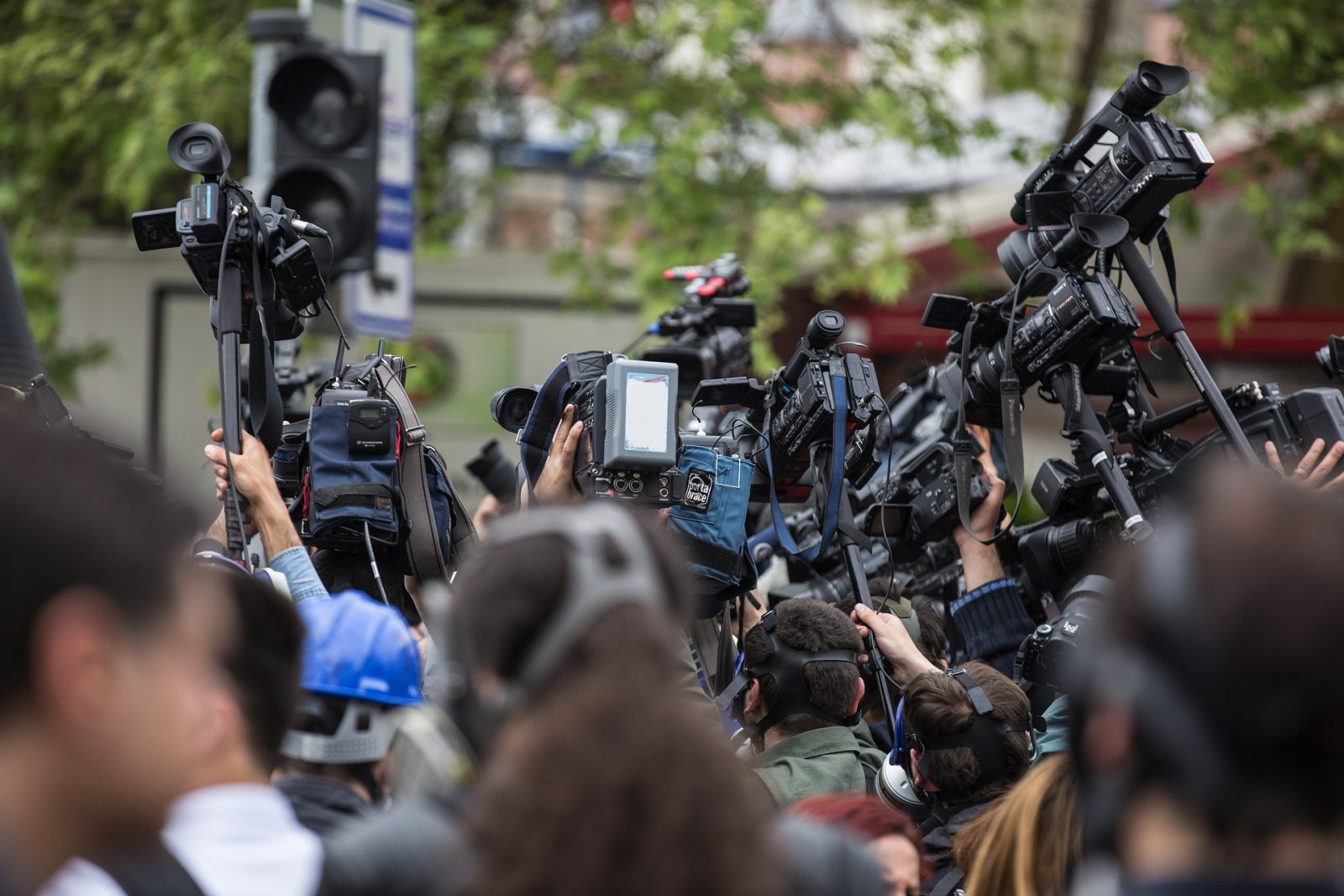

The question of media entertains us all, endlessly. With or without the boost of the Corona times, we go through a big time of transition. Corona seems to have stepped up the gear. Media, has developed new traits that we all need to understand. No need to ask why, simply we consume media 7/24.
An experienced voice is Dennis Redmont, a long time friend who I admire for the work he has accomplished and is still critically active. Redmont, an American journalist, has worked mainly in Europe. His reporting in Portugal during the fascist era was not welcomed by the ruling elite. Nevertheless, his work then, is considered a landmark for journalism today. He now lives in Lisbon, as the country years later praised his past work with a popular film on his life.
Ownership
What will happen to the media? The question is all about ownership. Two things are happening; On the one side the Big Technology, meaning communication companies, are taking over the media. Just to give you an example, CNN is owned by a telecom giant AT&T. Apple TV and others are selling news besides their technology.
On the other side, the owners of the media are the governments. Mostly in Europe but also in Asia, Africa, and the Middle East, governments own news companies. Even in the U.S. and the U.K. A quick example to refresh our minds is the BBC. These mediums provide government views.
Some of the new investor groups are going into the traditional media. Mr. Bezos of Amazon has acquired the Washington Post.
Google, Facebook, and other social media companies are another angle of the story. A very important one so to say; the first thing we do in the morning is browser search. The news and stories they are fed by are from the traditional media and brought to us via the browser pipeline. The first-hand developers of the news are unfortunately not being paid by the browser mediums, no revenue is generated for the journalists. The EU is in the middle of bringing discipline to the picture hopefully sometime in the near future.
End to traditional media?
The traditional media is filing bankruptcy, interestingly in the U.S., there is a big consolidation of media. Media companies are closing one after the other while the audience remains with prestigious titles such as the Wall Street Journal, New York Times, and Washington Post.
Even the prestigious “digital” titles Atlantic, Vox, or Buzzfeed are having difficult times due to a decline in advertisement or practically no advertising, while Google and the similar platforms are capturing all the economic activity that remains.
A crucial question might be “Is there a light at the end of the tunnel?” The answer is yes, as long as, there is “trust.” Trust is the keyword! People are diverting to titles they trust, not only to the privately-owned media, but also to the government media, if trusted. An interesting example is the revenge of the Italian public TV in the corona times. More people tuned into public TV. If you are talking about health problems, people chose the state broadcasters.
Journalists of the future?
Mentioning the Corona outbreak, with that has come the era of high skilled journalists who can do audio, video, and text at the same time. Another example; the AP had the first scoop at the emergency room of a New York Hospital. It seems the reporter was a born-digital journalist, doing audio-video-text and more in social media. This is cost-saving! Smallest amount of staff, most of everything.
Let us not forget the birth of living room journalism, which is a pure outcome of Corona. This is more than “zoom”ing at home. We are by now used to people digitally talking at home,. But this phenomenon is different from the anchor-person delivering the main news from the living room, performing like a superman. The anchor-person conducts the full show alone, writing the titles, calling in satellites, statistics, photos, reaching out to the correspondents wherever they are in the field or home…
Bad news for commentators
Multitasking is the new journalism. It is more than providing text, digital, audio, it is also about tweeting, Facebooking or YouTubing. And the most important of all is about knowing what you are talking about. This is knowledge-based journalism. This is a sign that we might all like to think that it is also the end to the embedded, or “according to me” commentary journalism, that has no base of knowledge but opinion. Viewers are condemning the low information, least skills of the opinion media personalities…
This brings us to an important side of the argument; the profession used to specialize the journalists. For sometime specialized people are being recruited to become journalists like CNN’s Dr. Sanjay Gupta, who is delivering health news for the last 10 or 15 years. It is important to explain the technical issues in a basic and understandable manner.
The training of journalists is transforming as expected to the fast and the deep. Fast meaning towards technology, deep meaning interpretation, and data analysis. Those commentators who have no idea on the critical data, as is said, those depend only on sole judgment are rapidly declining in ratings as seen in Italy recently, and it is happening everywhere. People are looking for information and also for solutions rather than only concentrating on problems. The new wave of journalism is not going to rely on skepticism or complaint only, but on practical solutions.
The Corona outbreak will be changing the media vastly, there is no turning back to the old days, at least there will be significant modifications in the news business. Living room TV is significant. Let’s remind ourselves that media organizations have sent thousands of people to work at home, keeping only a couple of hundreds in the center facilities. Lower costs and talented journalists are the future. This does not necessarily mean fewer journalists, it means skilled and versatile journalists.
Trust issues
In the meantime, we have experience news fatigue and news obsession on the reader-viewer side… Viewers and readers either began to avoid or they are burned out by the bombardment of news. Fear of missing out is immense on the client and competition is bloody on the media’s side, while we all fight with fake news.
Having said this, trust unfortunately is in the lowest level with regards to the media, businesses, NGOs and governments. Among the four it seems the CEOs have done better while helping the Corona needy. However it is a matter of sustainability, we will watch and see the end of the movie.
Last but not least, the interesting point is the level of intellectual capacity of the viewers and readers. Informed and uninformed public marks the future of the societies. Informed are those who can pay, chose and filter along with holding technological capabilities. The other part is uninformed, low technology, unable to filter and rather slow in collecting news. The critical question one may ask is who the valuable partner for the media will be. The answer is complicated, let us not forget the fact that many of the private companies serve to the masses. Last spot in the picture is public relations. It will cultivate new roles while the corporate world will rediscover the working class as the targeted audience.
- For the full interwiev Please click here. Y.Ö.


